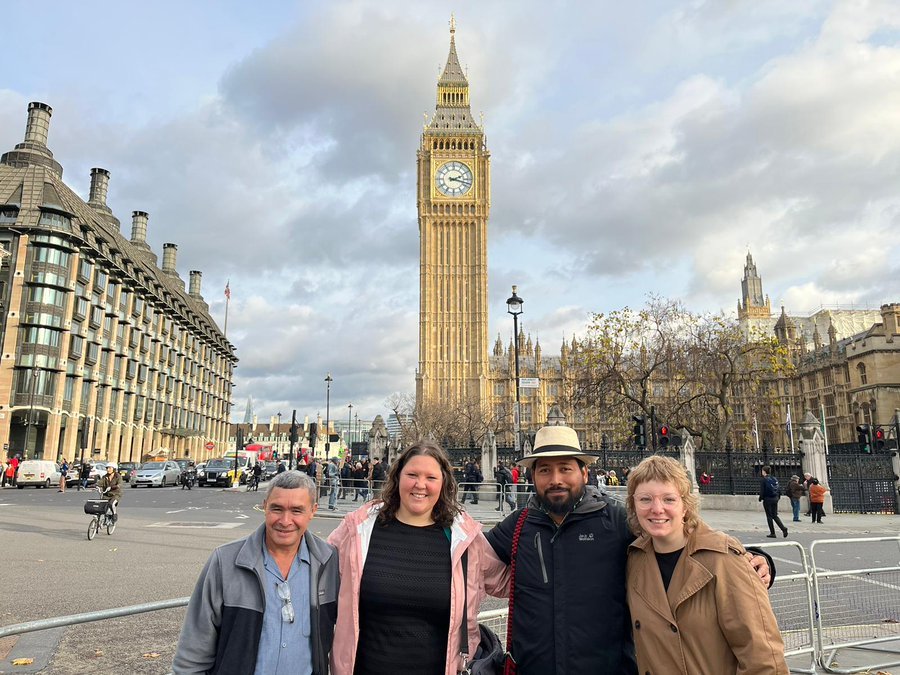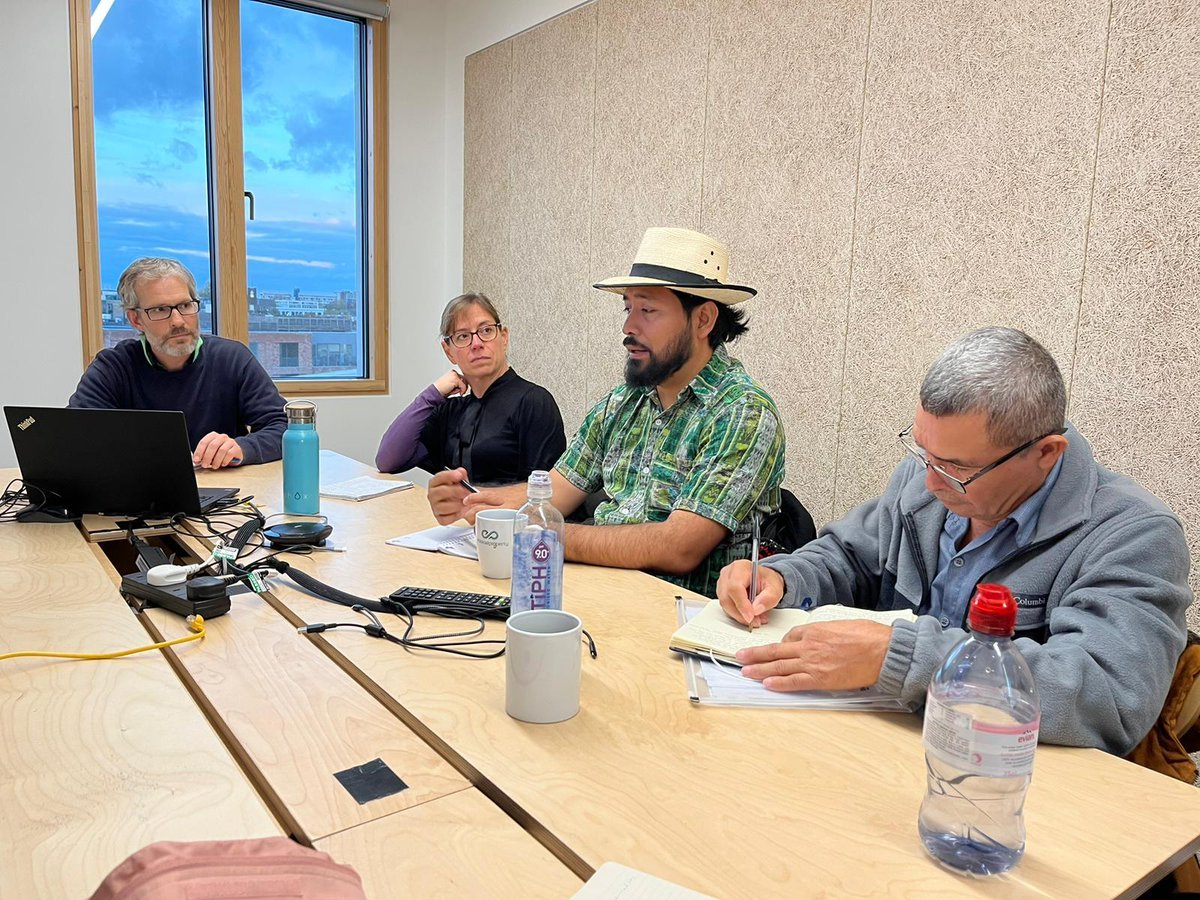Defending the environment is not a crime
Environmental activists call for better due diligence and an end to criminalisation during visit to the UK
During meetings with parliamentarians, the FCDO and civil society, community journalist Carlos Choc and environmental rights defender Reynaldo Dominguez called on the UK to protect and support human rights defenders in Guatemala and Honduras and ensure companies that violate human and environmental rights are held to account.
From 17-19 November, Indigenous community journalist Carlos Choc and environmental rights defender Reynaldo Dominguez visited the UK to meet with parliamentarians, the FCDO and civil society representatives. Their visit was part of a European tour by land and environmental defenders, who are calling on the European Union and the UK to enact due diligence legislation that protects the environment and the individuals and communities who defend it.
Carlos’s story: criminalised after telling the truth about destructive mining
Reynaldo and Carlos also called attention to the criminalisation of land and environmental rights defenders in Central America. Carlos has faced threats and criminal charges after photographing and reporting on violent repression by Guatemalan security forces of a demonstration during which an unarmed protester, Carlos Maaz, was killed. The protest was organised by local fishermen against the contamination of Lake Izabal, the largest freshwater lake in Guatemala, by the Fenix ferronickel mine.
The journalism network Forbidden Stories took up investigations into the Fenix mine after a warrant was issued for Carlos’ arrest, and reported that the Guatemalan authorities lied about what happened to Maaz, as well as the environmental contamination caused by the mine. The US Treasury Department has since sanctioned the Solway Investment Group, whose subsidiaries operated the Fenix Mine, due to ‘multiple bribery schemes over several years involving politicians, judges, and government officials’.
Despite widespread international attention, the criminal case against Carlos is ongoing. His movements are limited by the fact he must report to the prosecutor's office every 30 days. A hearing currently scheduled for 24 November will determine if the case against him is dropped or if he faces incarceration.
During his visit to the UK, Carlos called on the UK government to raise his case with their Guatemalan counterparts and draw attention to the criminalisation against him and other journalists.
“The right to inform and to be informed cannot be infringed.We are living through difficult times in my country, for investigating and reporting on environmental violations, corruption, and human rights violations. Despite this, I am convinced that being an Indigenous journalist is not a crime”
PBI’s team in Guatemala is closely monitoring Carlos’ case.
Reynaldo and the Guapinol defenders: jail time for speaking out about the environment
Reynaldo is a prominent member of the Municipal Committee for the defence of Common and Public Good (CMDBCP), an organisation that works to defend the environment in the Bajo Aguan region of northern Honduras. In 2019, Reynaldo was one of 32 members of the CMDBCP prosecuted for peacefully opposing a mining project that contaminated local waterways, including the Guapinol and San Pedro rivers. Eight of his colleagues spent 914 days in prison, despite a complete lack of evidence against them and classification of their detention as ‘arbitrary’ by the UN.
The criminalisation of the Guapinol defenders became a landmark case for human rights defenders who are persecuted for protesting extractive projects that contribute to local conflict and environmental degradation. The eight Guapinol river defenders were released on 24 February of this year following a decision in their favour by the Supreme Court of Honduras. However, they are still awaiting formal letters from the Honduran judiciary confirming that the charges against them have been dropped and the proceedings dismissed. Until then, they and their families fear that the case could be revived at any time.
Reynaldo and his colleagues who defend the Guapinol river have been stigmatised as ‘anti-development’, but he insisted this is not the case.
“Development is welcome, but it must be development in consultation with the people - development that respects the environment and human rights.”
During his visit to the UK, Reynaldo asked the UK government and civil society allies to continue following the Guapinol case until it is definitively closed. He also urged the UK government to take all necessary action to ensure that minerals extracted by companies that violate human and environmental rights don’t end up in UK markets, and to enact zero tolerance mandatory due diligence legislation.
“Our comrade Berta Caceres often said: “people, it’s time to wake up”. I would add to that, “people it’s time to stand up and take action!” The environment belongs to all of us. Without it there is no future for anyone.”
PBI’s team in Honduras has accompanied the CMDBCP throughout the legal proceedings and will be closely monitoring developments in their case.
In London, Carlos and Reynaldo met with the All Parliamentary Human Rights Group (APPG), MPs and the FCDO. They also spoke with civil society organisations including Global Witness, the Guatemala Solidarity Network, Reporters Without Borders, Amnesty International and the Environmental Network for Central America, who committed to following their cases and finding ways to support their ongoing work in defence of the environment and freedom of expression in Honduras and Guatemala.




